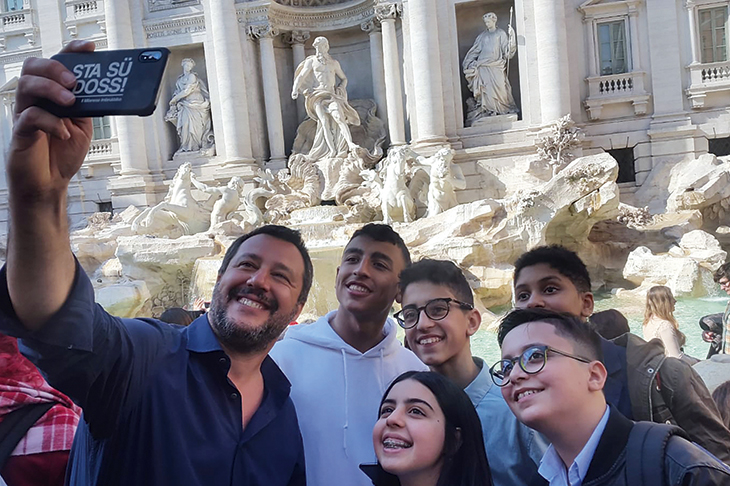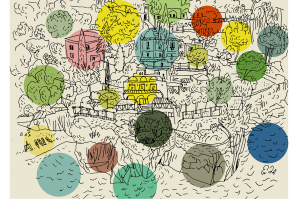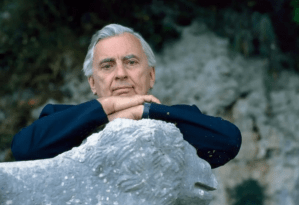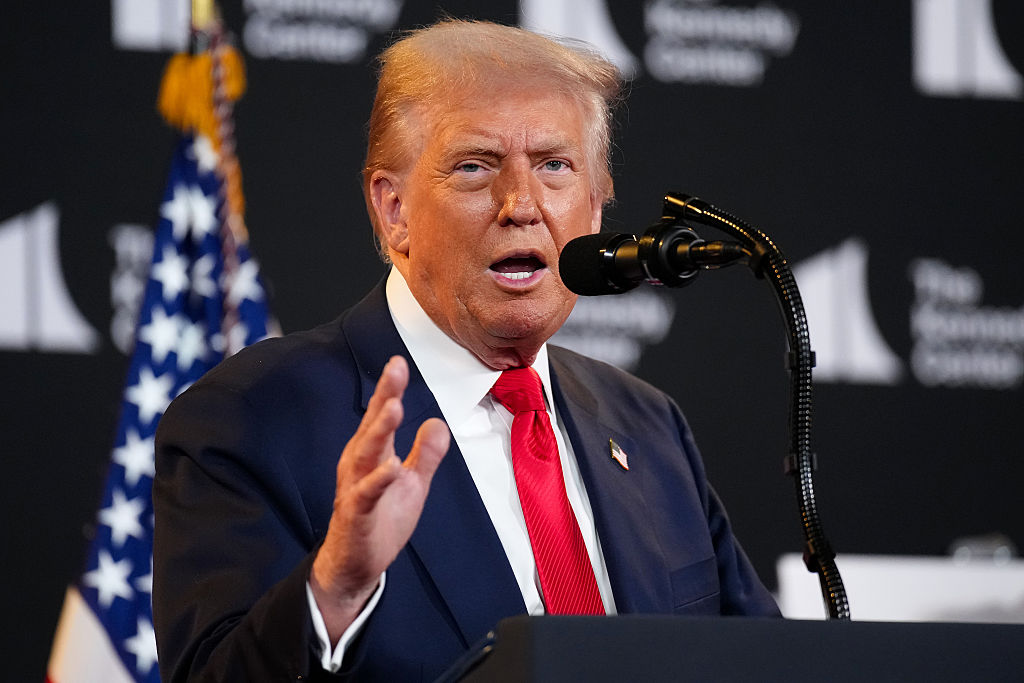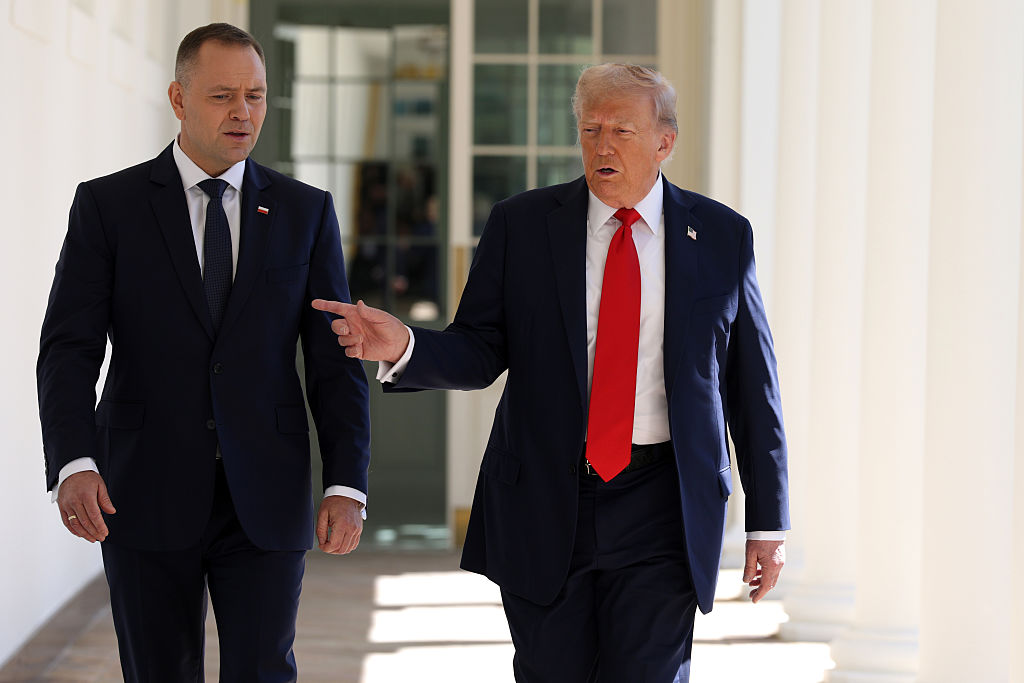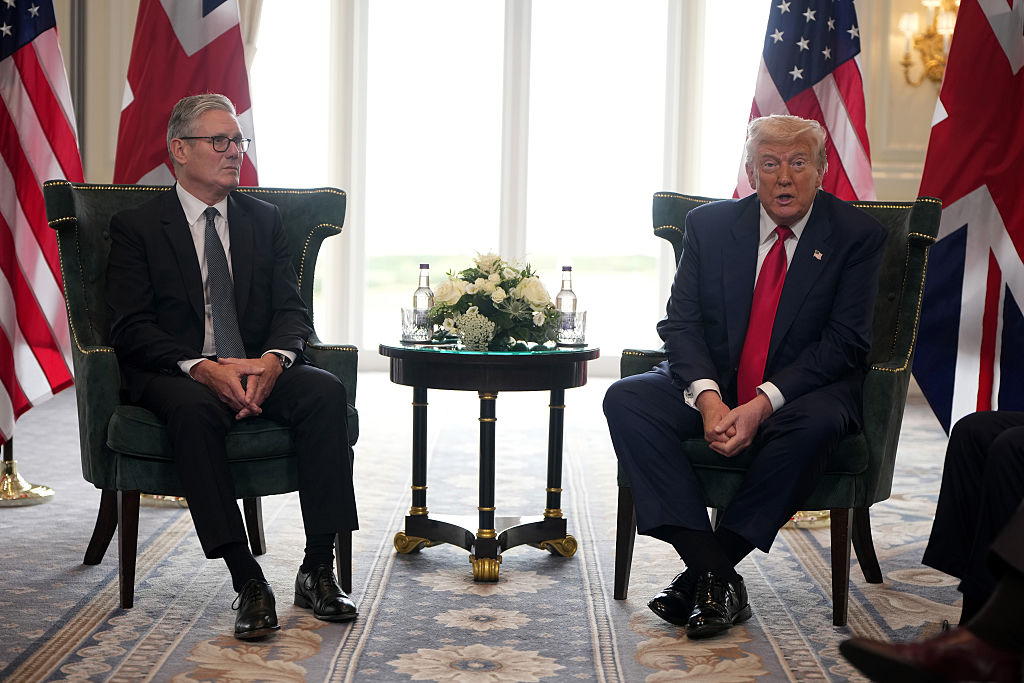While Britain continues to try to struggle its way out of the EU, perhaps it is wise to consider what is happening inside the bloc itself, not just in Paris where the fumes from burning cars fill the apartments and approval ratings for Emmanuel Macron continue to slide as he engages in a national listening exercise (which actually consists of him delivering Chávez-length lectures to the French public). But over the border in Italy, where the tone of the era is being set.
Being both interior minister and deputy prime minister is a tremendous position for Matteo Salvini to be in. It allows him to fulfill some of his election promises — most notably stopping the migrant boat landings — while being able to attribute the failure to perform others (such as deporting half a million illegals) on his coalition partners. These moves give significant fuel to his critics abroad but continue to gain him admirers at home. It is not hard to see why.
In February Matteo Salvini was speaking at a rally in the central Italian coastal town of Giulianova. He arrived onstage with the final bars of ‘Nessun Dorma’ blaring out. Awarded a personalized football shirt in the local club’s colors, he pulled it on over his sweater before addressing the crowd. One moment alone splintered the jubilation. While defending his policy of stopping migrant boat landings, and explaining that in Giulianova the needy must come first, one man in the crowd shouted, ‘Shitty murderer.’
Different politicians would have reacted in different ways to such an interruption, but none would have reacted like Salvini. Unruffled, he turned slightly, as though someone had raised an interesting point. ‘A precious contribution from the gentleman who says I am a shitty murderer. A round of applause for the gentleman,’ he said, ‘who has won 10 immigrants for his home.’ Miming someone signing a form, Salvini went on to explain pleasantly that if the man (‘my friend’) would just write down his name, family name and fiscal code number he would be sent his prize, ‘who he can look after for breakfast, lunch and supper’. This is the problem with the left, he explains, they always expect other people to pay the bills they run up.
No other European leader would attempt such a move, and no other politician would get away with it. But Salvini is proving himself a master not just of communication but of tapping into the mood of his country. And while his critics, both foreign and domestic, accuse him of whipping up public sentiment, it is at least as possible to argue that rather than inflaming it, he is calming it.
Though it has had little coverage outside the Italian press, consider his reaction to the attempted murder of 51 schoolchildren on a bus in Cremona province (just outside Milan) at the end of last month. The bus was driving between school and the gym when it was hijacked by its own driver, a man of Senegalese origin who became an Italian citizen a few years ago. He appears to have attempted the massacre as a protest at Italian government policy in the Mediterranean. ‘No one will survive today,’ he said, as he brandished guns and knives and ordered the occupants to bind each other up with cable ties. During the ensuing standoff, the man doused the bus in gasoline and set fire to it. Amazingly the carabinieri — who had refrained from shooting in case they started the blaze — smashed the windows of the bus and got all the children out safely. It was an extraordinary operation and averted an almost unimaginable tragedy. How some Italians might have reacted if this immigrant had succeeded in burning 51 schoolchildren to death is not a pleasant thing to consider. Not least because Italy has so far avoided the terrorist atrocities that have struck almost everywhere else in Europe.
In the immediate aftermath of the bus outrage (which appears to have been the action of one man acting alone), there was huge coverage in the national press about the courage of one child. While the children were being tied up, a 13-year-old boy of Egyptian origin called Ramy secretly used his mobile phone to alert his father to what was happening. His father then phoned the police. As with other European countries in the aftermath of such atrocities and attempted atrocities, it has become exceptionally important to focus on good-immigrant stories in the midst of the worst ones.
Salvini understands this, and in part of his livestream from his office he paid great tribute to the actions of Ramy on a bus filled with ‘Italians, non-Italians and future Italians’. The minister’s livestreams are — like Donald Trump’s tweets — easy to denigrate and hard to emulate. They allow Salvini not just direct access to the voters, but, without the editorializing of the media, show him to be a masterful political communicator. In these videos he is natural, down to earth and unpretentious as he guides the people who put him there around his ministerial office.
He had already announced that he was going to award Ramy Italian citizenship as a thanks for his bravery. But Salvini knows that Italy does not only want immigrant good news stories. And he knows what the direction of attention of the conventional media is at moments like this. So he used just a couple of minutes of his livestream to bring out another story. Having met the children from the bus, spoken to them and taken them out for gelato, Salvini highlighted a story that the press in Italy had completely ignored. The story of Nicolò.
Salvini explains that he wants to express his thanks to this boy — ‘a tough young boy of 12 who I repeat did not end up featuring on any coverage by the big television stations or newspapers, but who did something in complete silence that struck me and moved me’. At one stage in the hijack, the hostage-taker (‘this repugnant, delinquent criminal, whose Italian citizenship I hope to revoke as soon as he has been condemned by the courts’) asked, ‘Who among you will offer themselves as my hostage?’ Most of the bus’s occupants were busy praying, crying or hiding. But in the midst of it all, 12-year-old Nicolò, ‘who comes up to here [Salvini indicates halfway up his own body height], stepped forward and said “me”’.
Salvini blows a kiss at the camera. ‘Nicolò! A big kiss to you and your family because you really are tough, and I don’t know how many of you watching, and myself also most likely, in an event such as this one, would say “Take me”.’ It is a note not just of self-deprecation, but of sincere admiration. ‘Thank you,’ Salvini goes on. ‘Thanks to this young citizen of Crema for the example he set.’
Though they are sometimes compared, it is not the same style as Trump. The US President finds it notoriously hard to resist any opportunity to boast, and would likely have used such a chance to explain that in Nicolò’s situation he would have taken out the terrorist single-handed.
But Salvini is more natural, his flaws less far to the front than Trump’s. Is it really so surprising that the Italian public are concluding that, with all the difficulties their country faces, Salvini may be the person best placed to address them?
In last year’s elections the Lega won just over 17 percent of the vote. A year on and the polls show the party has doubled its share, and will become the largest by a significant margin in any upcoming election. The international press tends to present this as another dark victory for shady people, and — so certain are they in the parameters of their narrative — remain inoculated to the details. But the details are going to matter. For if Macron increasingly looks like the last gasp of business as usual in Europe, the style — as well as the content — of Salvini’s politics may well become a template for whatever is coming next.
This article was originally published in The Spectator magazine.



